A short essay on how technology alienates us from ourselves …
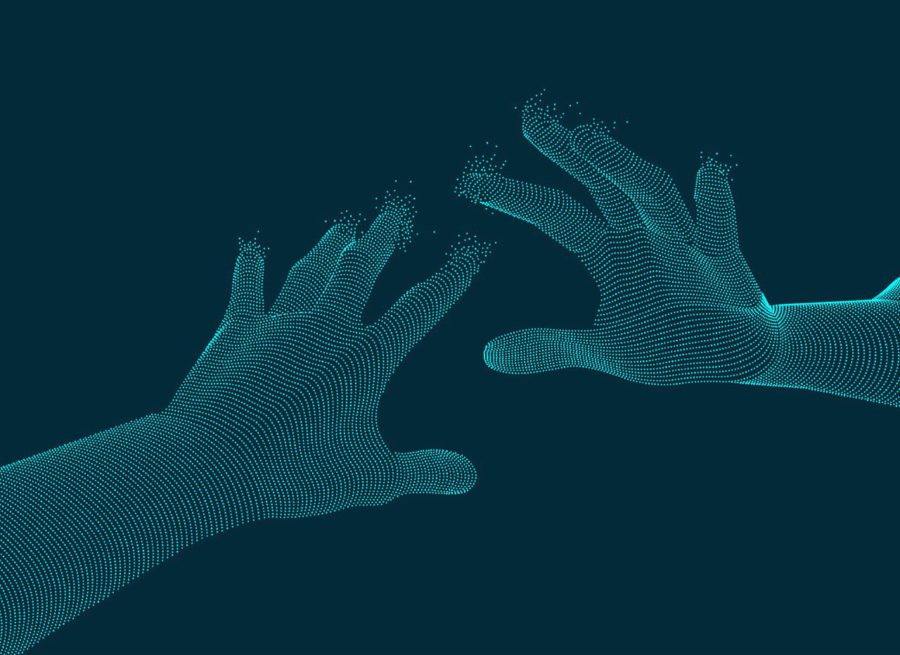
Original material by Douglas Rushkoff
Over the past few years, I've been pretty vocal about how digital technology is being used to desocialize us as users, how platforms like Facebook and YouTube set us up against each other, highlighting our differences and encouraging us to behave. as an endangered species.
All of this is really unfortunate, but in many ways there is nothing new here. Our media and technology have undermined our social connections for centuries. So what is the difference between today's situation? Is this digital alienation essentially different only in scale, or is something different happening? We will be able to begin to understand the differences of the modern digital environment only when we understand the principle by which technology has been working all this time.
First of all, we need to accept the fact that, at least since the industrial age, basic technologies have not been developed to make the world a better place on a fundamental, practical and human level. They are almost always an expression of some underlying economic dynamic, in our case capitalism.
As I wrote in my book Team Human, the industrial age brought many technical innovations, but few of them actually made production more efficient. They simply make the human skill less important so that workers can be paid less or replaced more easily. Queen Victoria sent power looms to India for the sole purpose of being able to hire less experienced workers and to devalue the local market. Rather than employing skilled craftsmen who are difficult to use and difficult to replace, production lines were designed with an emphasis on unskilled labor. The workers needed to be trained to perform only one simple task, such as hammering one nail into the sole of a shoe. The training took minutes, not years. If workers started to complain about the level of wages or working conditions, they were changed the next day.

Consumers of manufactured goods loved the idea that no human hands were involved. They admired seamless edging on products from the industrial era. They did not have a single minor flaw that is characteristic of sewn or hand-made goods. There was no trace of human involvement. This was the new fetish. At the World's Fair of Industrial Works of All Nations, held in Hyde Park in 1851, Prince Albert proclaimed the superiority of England in the world market with an incredible exhibition of mass-produced goods. The guests were shown mechanical looms and steam engines, but none of these devices were operated by human operators.
Even today, workers in Chinese smartphone factories wipe their fingerprints off with a highly toxic solution that has been (proven) shortening the lives of employees. This is how much consumers value their belief that their devices were born as a result of magical rituals, and were not collected by the fingers of children who were underpaid and in addition poisoned. Creating the illusion of a lack of human involvement actually costs more than a human life.
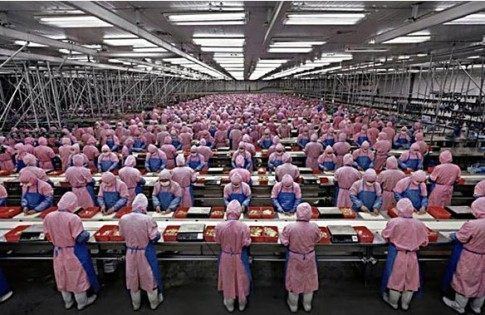
Of course, mass production of goods requires mass promotion. Although people once bought goods directly from those who made them, mass production divided consumer and producer and replaced that human relationship with a brand. Therefore, people accustomed to buying oats from a miller-neighbor have become consumers who now need to go to the store and buy a box that has come from far away.
The brand image has replaced a real person with a fictional one, carefully designed in order to please us more than an ordinary living person. Just as manufactured goods were considered comparatively superior because of their freedom from the influence of human hands, so our relationship with idealized brands in the consumer culture had to surpass any relationship with our imperfect fellow citizens. Relationships with brands are as close to platonic ideals as possible: they are pure, abstract and impersonal.
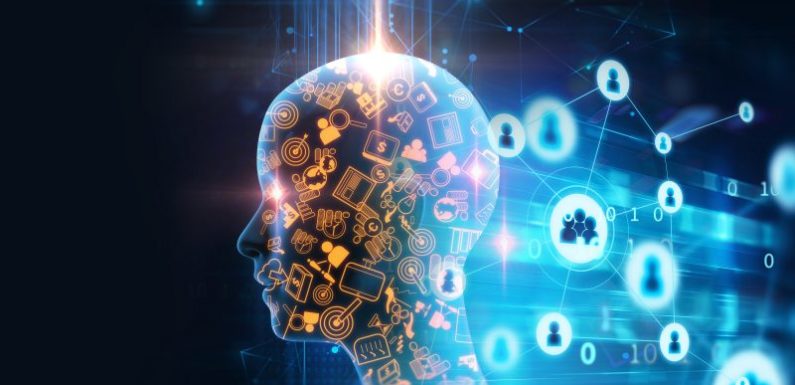
For this, manufacturers have resorted to technology again. Mass production could have led to mass promotion, but then the latter needed the help of the media in order to reach more potential consumers. We may love the idea that radio and television were invented with the intention of giving more reach to artists, but the heyday of broadcast media was designed solely to give new American brands the opportunity to get their ads across the country. This is how the culture of consumption was born and media technologies became the main way of persuading people to put the fact of ownership above relationships, and social status above social ties.
The less fruitful real relationships are in someone's life, the more vulnerable they become to artificial relationships.
The controlling capitalism that many of us complain about is a simple development of an effort to dissociate people and then process each one individually with algorithms. And then lock us up in personalized news feeds where we communicate with content, not with each other. By interfering with the establishment of mutual understanding between people, such platforms keep us from achieving unity and strength. Before us is the same good old industrial era, the same TV-driven desocialization, just amplified by powerful digital tools.
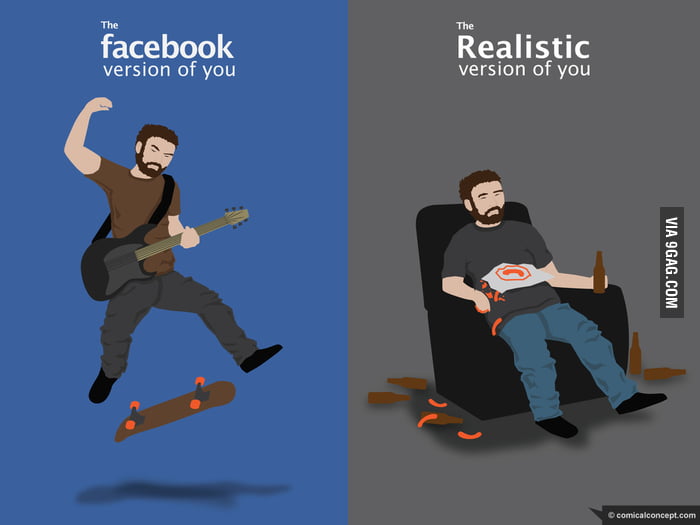
In this sense, the same Facebook is something new. Like Netflix, Instagram or Amazon Prime, it is an attention economy-based television that runs on a digital platform and has the same psychological effects. A new form of unique digital manipulation is emerging in the way these platforms affect us as individuals, as individuals. As soon as algorithms 'grab' us by the brain stem, they stop working to separate us and those we love, and make us forget who we are. They alienate us not from the values that we create, but from our constant striving for the best as sane living beings. They cut us off from our soul.
What does it look like? This is a digital environment where we realize our importance through metrics: the number of friends, hearts and, yes, shares, but also through our social value as workers and breadwinners, but not fundamental values and human dignity. This is what motivates us to buy tablets and laptops for schoolchildren instead of giving teachers more space to work autonomously and with students. This is how a top researcher at Google saw artificial intelligence as our evolutionary future.
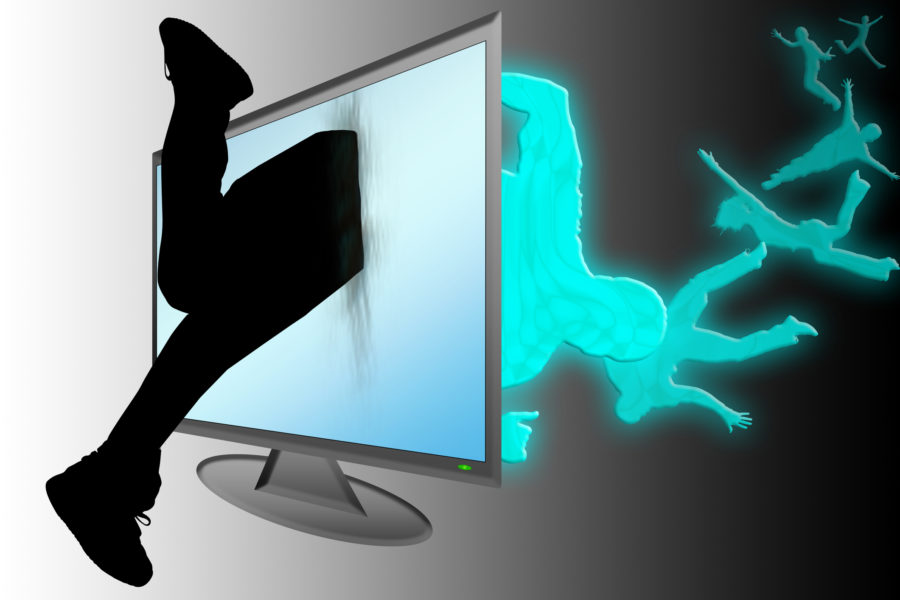
Many of us are already feeling this disorientation now that news stories and urgent releases are presented to us in a way that elicits a fight / flight response, but then swap out until we reach some apparent degree of understanding. This is how algorithms work, they smooth out our unpredictability and make us behave in accordance with the consumer profile. This can be seen in everything from slot machine algorithms built into our news feeds to stimulate addictive behavior to auto-tuned pop music that quantizes and standardizes the newly human voice. It's not just asocial, it's inhuman.
Yes, the easiest way is to regain a lost relationship. Being human means playing in a team, and we can easily reshape ourselves, for this it is enough to take someone by the hand, look into their eyes and just breathe in unison.
Original material by Douglas Rushkoff
In this entire digital economy, it seems so difficult to find something alive, real and real, something that does not seek to make money from you, adjust you to a ridiculous algorithm, prescribe your actions for the future and turn you into another useless participant 'rat fuss', which has no end and end. 'Buy now, it's great, look what magic! And we'll figure out the consequences later, '- as if billboards and banners hitting the eyes on the web tell us.
Of course, the problem may seem sucked from the thumb, but the evolution of technologies is relentless, especially those aimed at making money from 'big data', the masses of people, marketing on social networks and the Internet in general. Ideals are fragmented, imposed desires multiply, and time outside the network becomes something distant, almost forgotten. And all this plays into the hands of algorithms that are happy to pull new users into their networks. But, I would like to hope that at least some representatives of Homo sapiens will find the strength to be above this and not forget about real life, no matter how difficult it may be.
